News
16:48, 27.02.2024
7

On February 27th, the Counter-Strike 2 community rapidly began spreading news that the esports club of the legendary Ronaldinho had been shamed worldwide due to its participation in an event sponsored by the Russian government, specifically the so-called "Games of the Future".
In this article, we'll break down the essence of the event and provide irrefutable evidence of why this project is entirely dependent on the Russian government. We will clearly demonstrate why Ronaldinho should have paid more attention to his team. Overall, it will be interesting.
A bit about the team
Let's start from the beginning, with the Ramboot roster in Counter-Strike. Yes, this team is sponsored by Ronaldinho, the very footballer who won the World Cup in 2002.
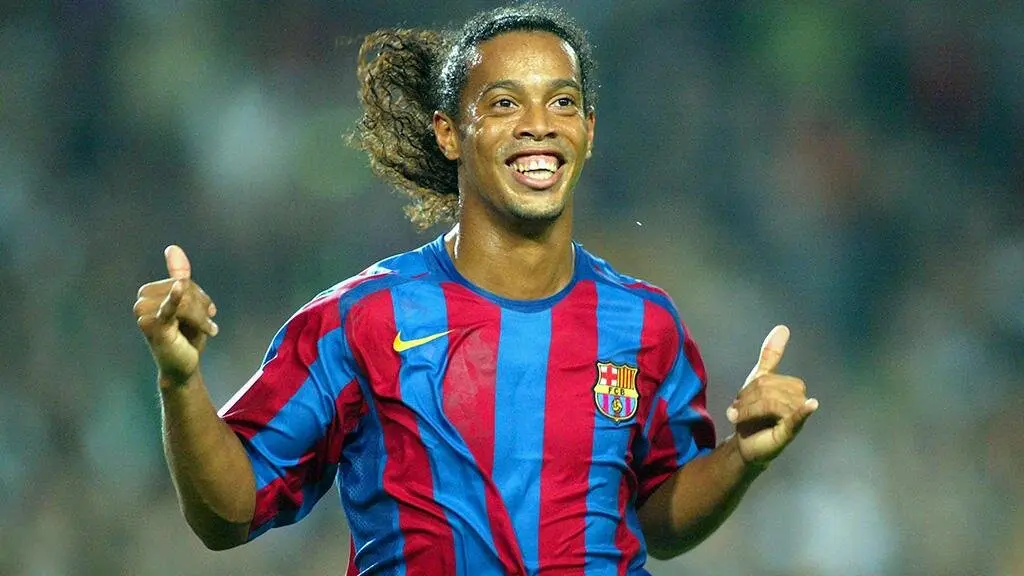
Regarding the team's achievements, we won't mention them because there simply are none. The team plays open qualifiers but tends to drop out in the second or third round against typical 3-4k ELO stacks. Now, let's go through the nicknames of the members of this roster. It's important to note that they are all Spaniards:
- tense
- carta
- zacketizor
- ross
- arki
By the way, this lineup includes that legendary Spaniard who became famous for his clip: "Green, what's your problem?".
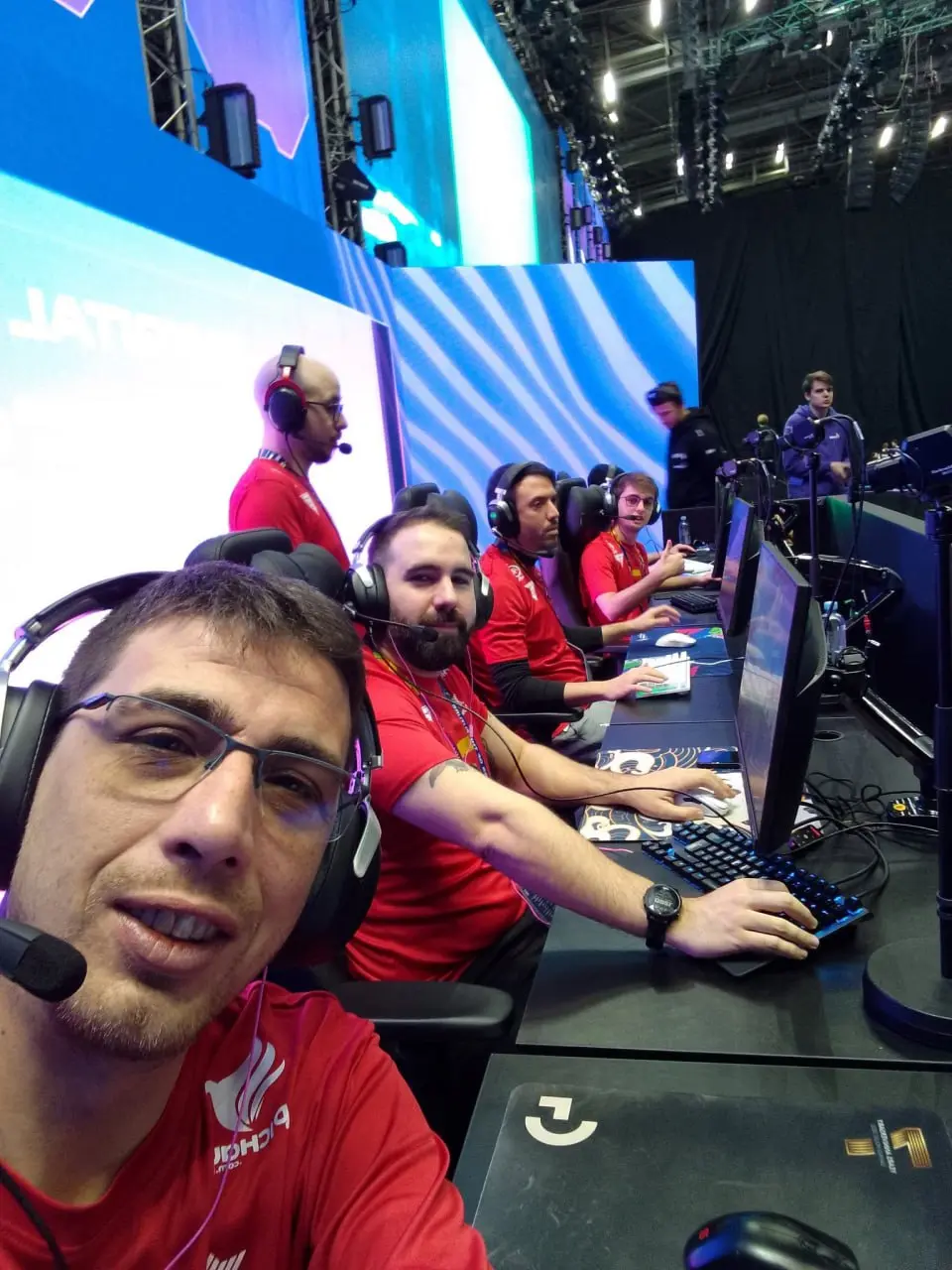
Let's talk about the team, and now let's move on to the most interesting part.
About the "Games of the Future" event
The "Games of the Future" take place in the central part of Russia, namely in the city of Kazan. It is here that the Ramboot team participates. Oddly enough, why Kazan, a smaller city, and not Moscow, for example? Well, the reason is simple, to ensure Ukrainian missiles and drones cannot reach, allowing participants to feel "safe" among terrorists.
Imagine: a tournament created to whitewash Russia's terrorist reputation. An event sponsored by sanctioned companies like "Gazprom", "Sberbank", "Russian Railways".
Putin, recognized by The Hague as a war criminal, appears at the opening ceremony. And here, among the participants, we see various lineups of Ronaldinho's esports club. Surprised? Here, for example, is the lineup of a Brazilian basketball team, also sponsored by the footballer:
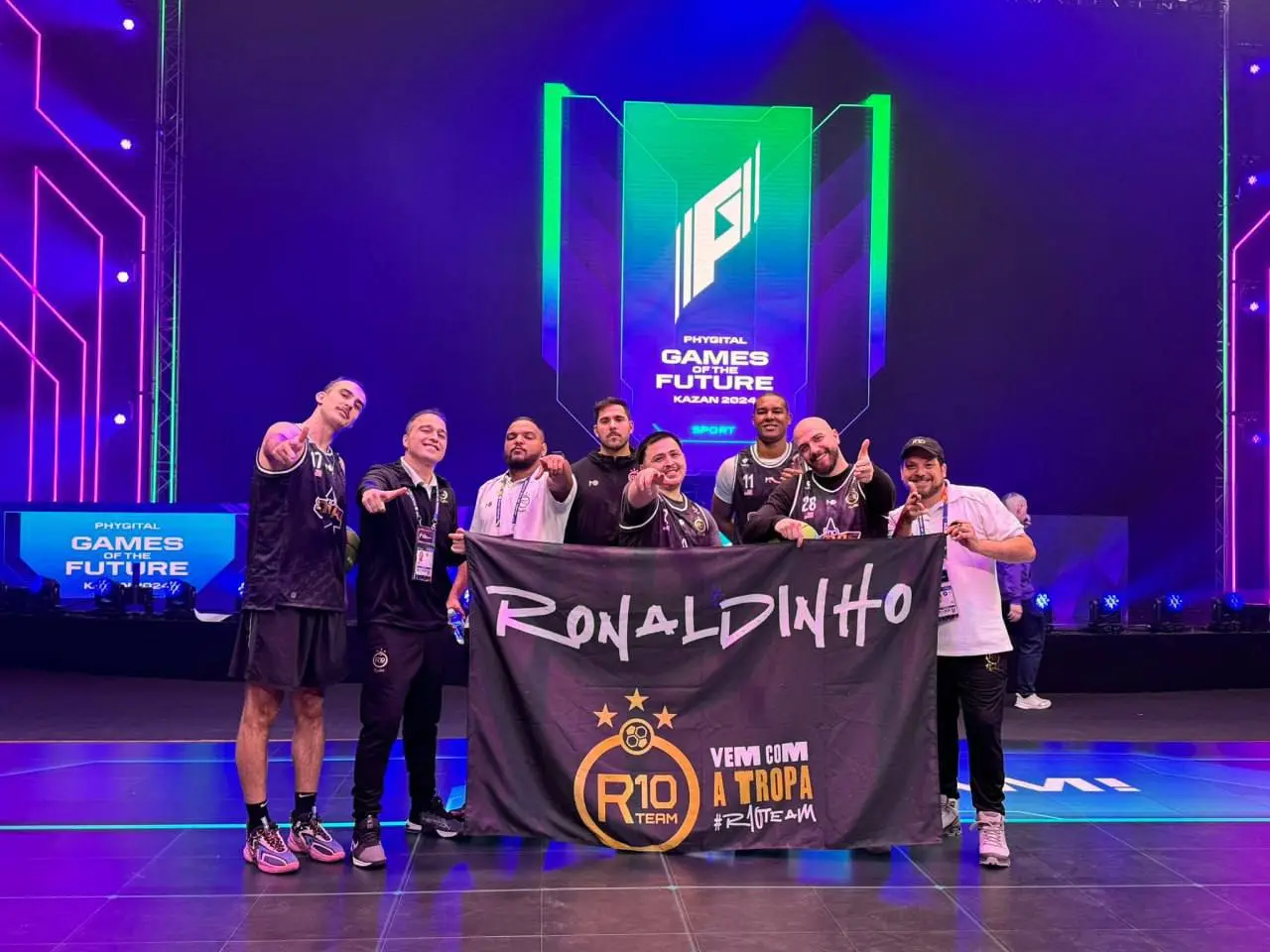
But, let's return to the event itself.

Why "The Games of the Future" is a purely political project?
"The Games of the Future," a large-scale event that combines esports, physical activity, and cutting-edge technologies such as virtual reality and drones, has garnered support at the highest levels of the Russian government. Organized to showcase innovations in the world of sports, the event represents a unique combination of physical and electronic games, including popular tournaments in Dota 2, Counter-Strike, Mobile Legends: Bang Bang, and other games.
In 2022, during the St. Petersburg International Economic Forum, Russian Deputy Prime Minister Dmitry Chernyshenko announced that "The Games of the Future" would take place in Kazan, emphasizing the strategic role of the event in promoting technological and sports innovations in the country. In March 2023, Russia and China signed a joint statement, confirming cooperation within "The Games of the Future" and expressing their common disagreement with Russia's exclusion from international sports competitions, which highlighted the political context and significance of the event on the international stage.
The organization of the event is fully funded by the Russian government with a total budget of 5.3 billion rubles, although there are discrepancies in the data about the prize fund: the official website of "The Games of the Future" indicates $10 million, while some official sources report about $25 million. Against the backdrop of these events, in December 2023, President Vladimir Putin personally signed a law launching "The Games of the Future," underscoring the state interest and support for the project.
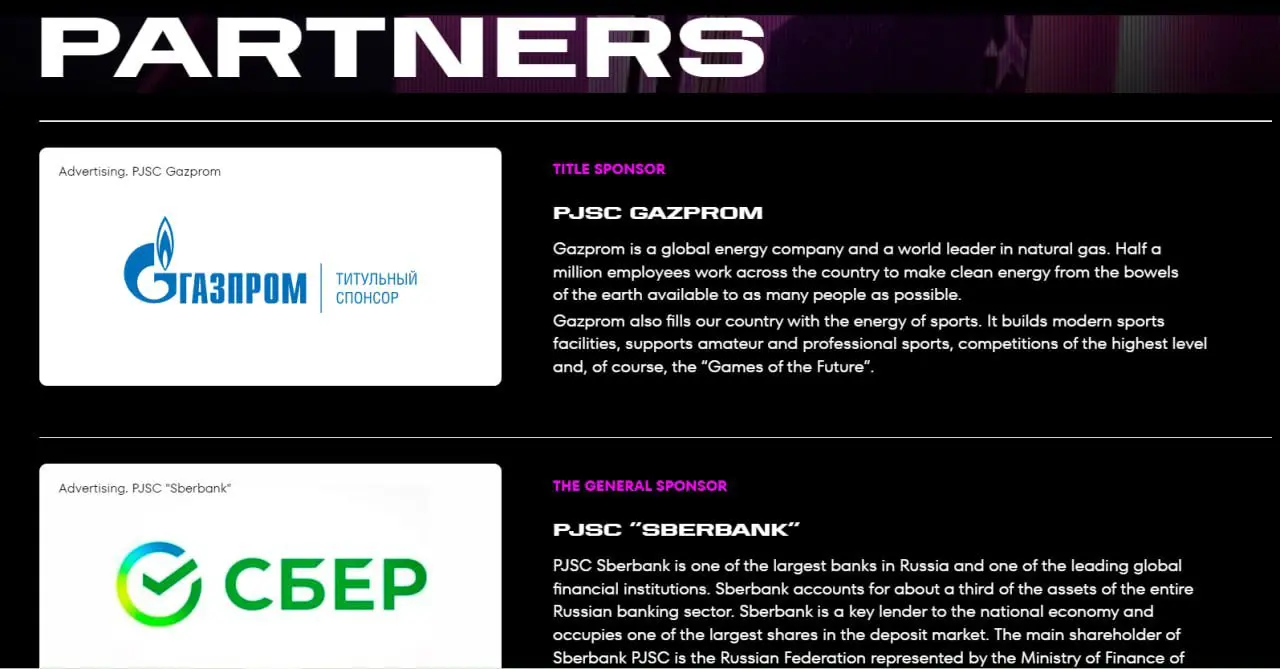
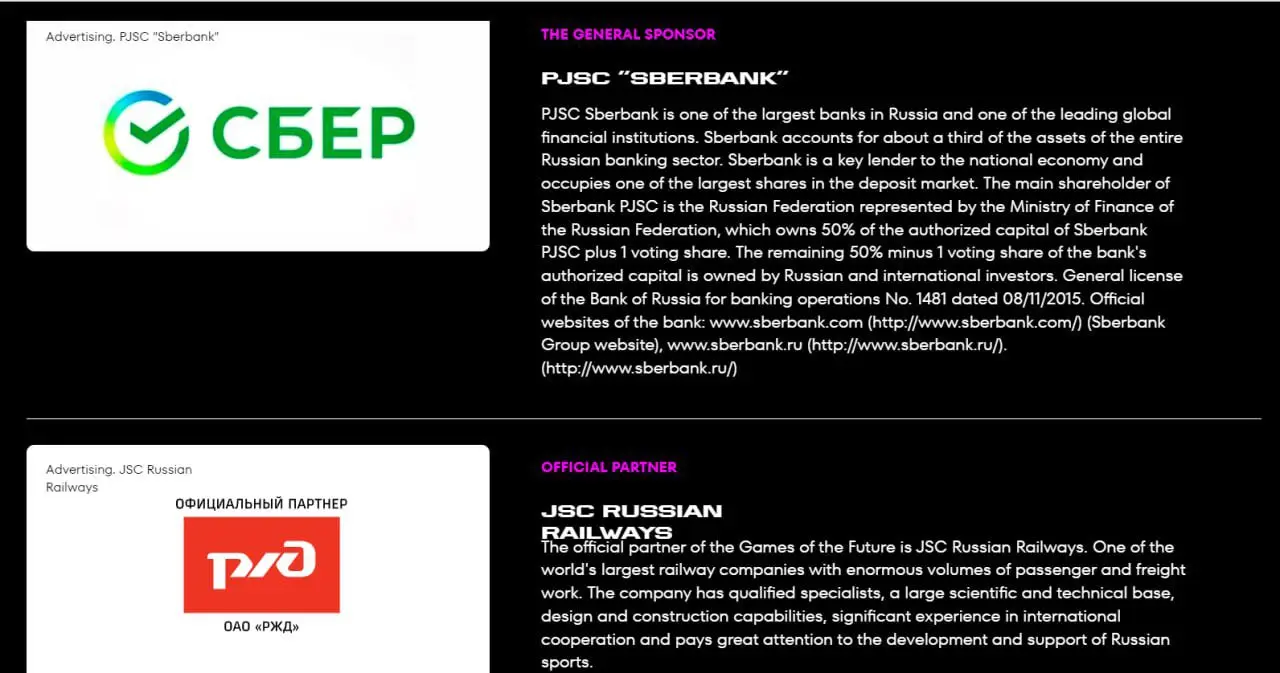
Behind the project is Dmitry Chernyshenko, Deputy Chairman of the Russian government for tourism, sports, culture, and communications, who is under sanctions from the US, EU, and the UK. Among the key partners of the event are major Russian companies such as Russian Railways and Gazprom, which are also under international sanctions. This underscores the challenges and difficulties the event faces amid the current international standing of Russia.
To substantiate, look at the opening ceremony of the championship, where Putin is shown in close-up. He will also give a speech:
#Putin, athletes, presidents and the Russian anthem at the opening of the Future Games in #Kazan.#GamesOfTheFuture2024 pic.twitter.com/n06T6beFCY
— StellaMoscow (@SgforgoodStella) February 21, 2024
Participation of international organizations in the "Games of the Future"
The participation of the Qatari company PSG Quest in "The Games of the Future" reflects the international nature of the event, despite some Western Dota 2 teams, including Heroic, refusing to participate due to the complex geopolitical situation. This mixed reaction underscores the challenges and considerations for Western teams and organizations in navigating the legal and PR risks associated with sanctions against Russia. For teams from Eastern and Southeast Asia, participation is less controversial, reflecting regional positions on the Russia-Ukraine conflict.
Sanctions by the European Union, the USA, and the United Kingdom complicate legal and financial operations with Russian entities, affecting the ability of Western teams to participate and manage prize money. Legal nuances, highlighted by international legal experts, emphasize the difficulties of interacting with Russian events amid the current sanctions regime.
Additionally, licensing issues represent another layer of complexity, with indications that "The Games of the Future" may proceed without official licenses for some of the video games presented.
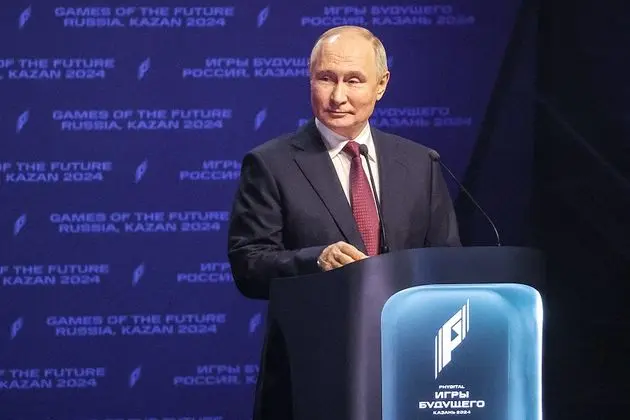
This scenario challenges the traditional structure of esports, which relies on collaboration between tournament organizers and game publishers. Proposed Russian legislation to circumvent the need for such licenses reflects a significant shift, potentially setting a precedent for future esports events in the country.
The active involvement of the government in "The Games of the Future" is part of a broader strategy to promote Russia's image and interests on the global sports and esports arena amid ongoing international scrutiny and sanctions. This event, positioned as an alternative to traditional Olympic and sports institutions, signals Russia's ambitions to create a resilient sports movement, impervious to external pressures and sanctions.
For the global esports community, "The Games of the Future" represent a complex intersection of sport, politics, and legal challenges, raising the stakes in the ongoing debate about the future direction and governance of esports.
And all this comes at a time when Russia has been waging a treacherous war against Ukraine for two years.
Players from Ramboot and Russia's attack on Ukraine in 2022
As expected, players from this organization, as well as the organization itself, did not react to the start of the war. Now, their participation there becomes even more explainable.

What point do we want to make?
Everyone understands that conducting transactions with sanctioned states or institutions is a criminal offense. Of course, we do not want athletes from Spain or Brazil to receive criminal punishment. However, it is important that such incidents do not recur and players make their changes. Even better, to support Ukraine financially.
For the entire civilized world, it should be clear that support or participation in projects from Russia equals supporting the deaths of innocent civilians in Ukraine.
Upcoming Top Matches
Latest top news





Comments7